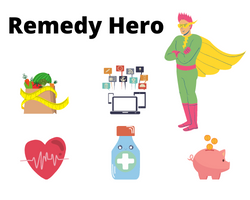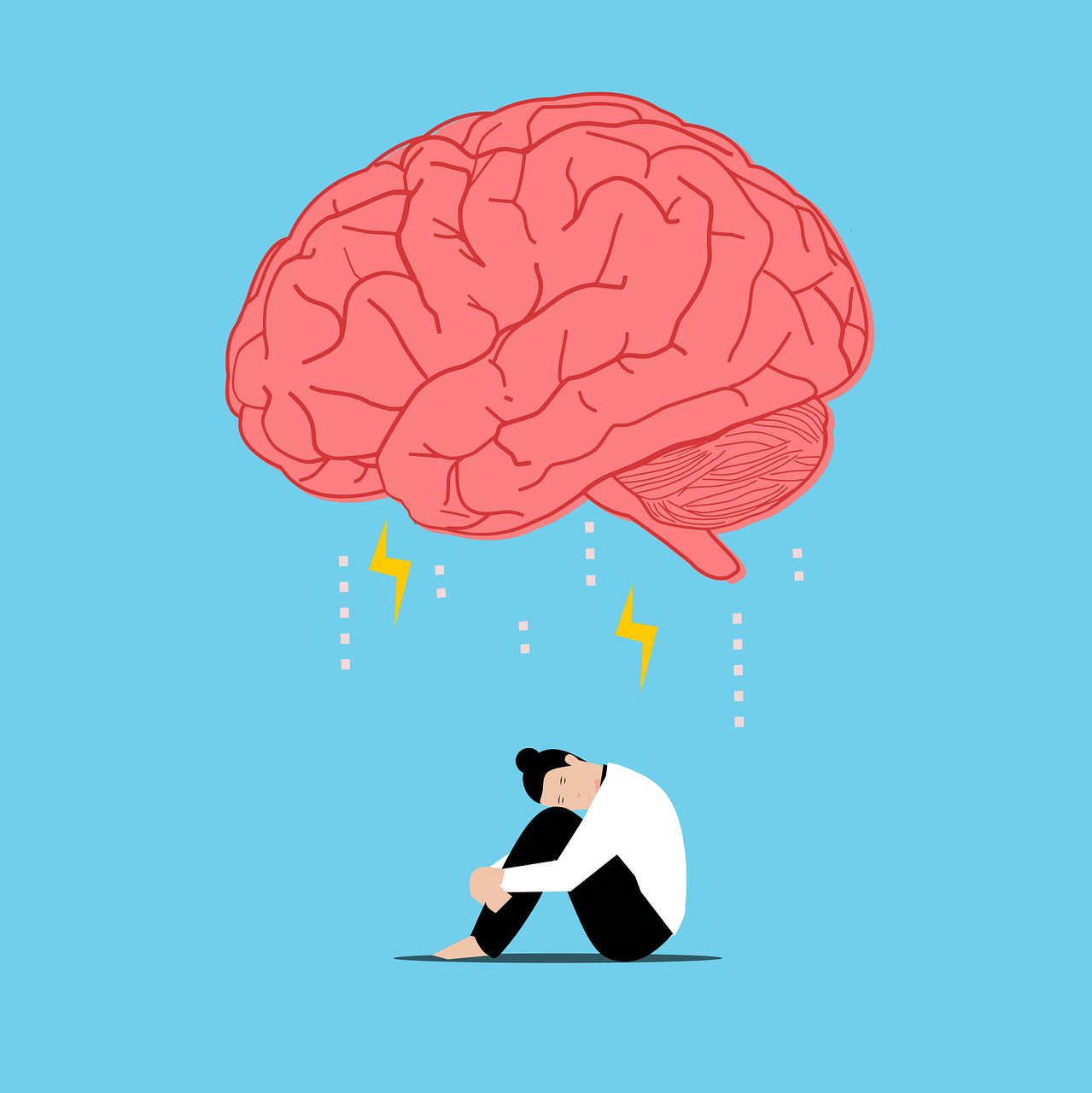The vagus nerve is the longest cranial nerve in your body, acting like a bi-directional communication highway between the brain and many internal organs. Its activation is key to promoting a state of relaxation and restoration in the body through the parasympathetic nervous system while simultaneously dampening the ‘fight or flight’ impulses of the sympathetic nervous system. Learning to stimulate this nerve can help enhance your ‘vagal tone’, potentially leading to better stress management and overall well-being with vagal nerve hacks.
However, it’s not just about calming down; a healthy vagal tone is linked with a variety of mental health benefits. By using various techniques to stimulate the vagus nerve, you can harness its power to help regulate emotional states and potentially improve conditions such as anxiety and depression. It’s important to understand that while these methods can be beneficial, they are not substitutes for professional healthcare services when dealing with serious health concerns.
Key Takeaways
- The vagus nerve is central to the parasympathetic nervous system’s role in relaxation and stress reduction.
- Improved vagal tone can influence emotional regulation and mental health positively.
- Techniques to stimulate the vagus nerve cover a range of practices, from breathing exercises to dietary adjustments.
- A vasovagal response is a common reaction to stress or overstimulation of the vagus nerve that most people will experience at some point.
Understanding the Vagus Nerve
The vagus nerve is one of your most significant nerves, linking the brain to various body parts and regulating numerous functions. Let’s explore its anatomy and how it controls your bodily systems.
Anatomy and Function
Your vagus nerve, the tenth cranial nerve, has an extensive reach, extending from the brainstem down to your abdomen. This bilateral nerve connects your brain to many organs, including the heart, lungs, and digestive tract. The name “vagus” comes from the Latin word for “wandering,” aptly describing its long and branching path.
Role in the Autonomic Nervous System
The vagus nerve plays a pivotal role in the autonomic nervous system (ANS), which controls involuntary body functions. It’s particularly active in the “rest and digest” state, as opposed to the “fight-or-flight” response that’s mediated by the sympathetic division of the ANS. By transmitting signals to various organs, the vagus nerve helps maintain a stable internal environment.
Effects on Organs and Bodily Functions
In terms of effects on organs and bodily functions, the vagus nerve has a broad impact:
- Heart: Helps control heart rate and blood pressure.
- Lungs: Affects breathing rate and depth.
- Digestive tract: Influences peristalsis and the secretion of digestive enzymes.
- Vocal cords: Your vagus nerve is connected to your vocal cords, the muscles at the back of your throat and passes through your inner ear.Source: health.clevelandclinic.org
- Eyes: There are also claims simple eye movements can reset the vagus nerve.Source: uow.edu.au
- Facial expressions: The vagus nerves have a role in social communication because they are linked with our facial expressions and voice.Source: theconversation.com
A well-functioning vagus nerve promotes relaxation, digestion, and healing, while dysfunction may lead to a range of health issues.
Physiology of Vagal Tone

Understanding the physiology of vagal tone is crucial because it influences your heart rate and overall health. Knowledge of how to measure it and its relationship with heart rate variability provides insight into the state of your physical health.
Measuring Vagal Tone
You can assess your vagal tone by observing changes in your heart rate during respiratory cycles. This assessment, often non-invasive, provides a window into the functioning of your autonomic nervous system. When you inhale, your heart rate slightly increases, and when you exhale, it decreases due to vagal activation.
Heart Rate Variability
Heart rate variability (HRV) is the measure of the time gap between your heartbeats, which varies as you breathe in and out. High HRV is generally indicative of a healthy heart and a robust vagal tone. According to research mentioned in Psychology Today, there’s a strong correlation between vagal tone and the high-frequency component of HRV.
Vagal Tone and Physical Health
Your vagal tone is deeply intertwined with your physical health. Enhanced vagal tone is associated with improved regulation of blood glucose levels, reduced risk of heart diseases, and lower blood pressure. The Cleveland Clinic notes that stimulating your vagus nerve can help regulate your emotions, reduce your blood pressure, lower your heart rate, and reduce inflammation, contributing to overall better physical health.
Improving Vagal Tone
To enhance your vagal tone, specific methods including targeted breathing strategies, physical activities, and dietary choices are critical.
Breathing Techniques
Deep breathing and diaphragmatic breathing are effective for activating your vagus nerve. This can be achieved by elongating your exhales, which can help to calm your nervous system. For instance, a technique to practice is making your exhalation twice as long as your inhalation. You may find that performing this breathing exercise for just a couple of minutes can result in a substantial calming effect. More insights into this practice can be found in the discussion about longer exhalations and vagus nerve.
Movement and Exercise
Exercise is crucial for improving vagal tone. Engaging in movement can stimulate the vagus nerve, leading to the release of neurotransmitters that promote well-being. Yoga, specifically, is recommended for both its physical and stress-reducing benefits. Through its combination of movement, breathing, and meditation, yoga can effectively enhance vagal tone.
Diet and Nutrition
Your dietary choices can influence the health of your vagus nerve. Incorporating fermented foods into your diet, which are rich in probiotics, can be beneficial for your gut-brain axis, a pathway where the vagus nerve is a key player. A well-balanced diet with a focus on anti-inflammatory foods may also support vagal health, as the Cleveland Clinic explains. Remember, consuming a variety of nutrients from whole foods is paramount for maintaining a robust vagal tone.
Mind-Body Practices
Incorporating mind-body practices into your routine can activate the vagus nerve, which helps regulate stress responses and promotes a sense of calm. These practices are not only beneficial but also accessible and can be tailored to your comfort level.
Meditation and Mindfulness
Meditation and mindfulness exercises are powerful techniques for vagal nerve stimulation. By focusing on deep, rhythmic breathing, you encourage a parasympathetic response which can calm your nervous system. Engaging in a consistent meditation practice has been shown to improve mood and reduce anxiety.
Yoga and Tai Chi
Yoga combines physical postures, breathing exercises, and meditation, making it an excellent practice for vagus nerve health. Similarly, Tai Chi’s gentle movements and attention to breath can also enhance vagal tone. Integrating activities like yoga into your weekly schedule can provide the combined benefits of exercise and relaxation.
Relaxation Techniques
Implementing relaxation techniques such as progressive muscle relaxation or guided imagery engages your vagus nerve and encourages a restful state. Techniques that involve making a joyful noise, including singing or humming, can stimulate the vagus nerve and foster relaxation.
Vagus Nerve and Mental Health
The vagus nerve plays a pivotal role in modulating your mental wellness, significantly influencing stress, anxiety, and mood. By understanding its function, you can leverage certain practices to enhance your mental health and cognitive resilience.
Stress and Anxiety
Your vagus nerve serves as a mediator between your brain and body, directly affecting how you manage stress and anxiety. Techniques such as deep, slow breathing can activate the vagus nerve, helping to calm your nervous system. Practices like cold-water immersion have been shown to stimulate the vagus nerve through a skin reflex, offering a practical hack to reduce stress levels.
- Stress Reduction Techniques:
- Deep breathing
- Cold-water face immersion
Depression and Mood Disorders
Individuals with mood disorders, including depression, might benefit from vagus nerve stimulation (VNS) to improve their emotional state. VNS has been linked with the regulation of mood-related brain activity, presenting a non-pharmaceutical method to potentially ease depressive symptoms. Simple activities like singing and humming can increase vagal tone, influencing your mood positively.
- Mood-Boosting Activities:
- Singing
- Humming
Impact on Cognitive Function
Cognitive function, encompassing attention, memory, and executive function, can be influenced by the health of your vagus nerve. Strong vagal tone has been correlated with improved stress response and resilience, which may benefit your overall cognitive processing. Strategies for vagus nerve stimulation, such as mindful breathing, could help in maintaining cognitive clarity and focus.
- Cognitive Enhancing Strategies:
- Mindful breathing
- Vagus nerve stimulation devices
Vagus Nerve Stimulation (VNS) Therapy
Vagus Nerve Stimulation (VNS) Therapy is a treatment that involves sending electrical impulses to the vagus nerve to alleviate symptoms of certain health conditions. This therapy has shown promise, particularly in the realms of epilepsy, depression, and other neurological disorders.
VNS Medical Procedures
Your doctor might consider VNS Therapy if you have epilepsy that doesn’t respond well to medications. The procedure involves surgically implanting a small device similar to a pacemaker under the skin on your chest. Wires from the device are connected to the vagus nerve in your neck. The device sends electrical impulses to your brain to reduce the frequency and intensity of seizures.
Therapeutic Effects of VNS
The electrical impulses from VNS can modify brain activity in a way that reduces seizure occurrence and may lessen the severity of symptoms in depression and other conditions. The therapy can lead to improvements such as:
- Decreased seizure frequency: many patients experience a substantial reduction in the number of seizures.
- Mood regulation: patients with depression may notice mood stabilization.
Conditions Benefited by VNS
- Epilepsy: VNS is mostly used for controlling seizures when other treatments have failed.
- Depression: It is also an option for treatment-resistant depression.
- Chronic Migraines: There is emerging evidence suggesting the potential benefits VNS may have for individuals suffering from chronic migraines.
- Multiple Sclerosis (MS): Some studies have indicated that VNS may help manage certain symptoms in MS, though further research is necessary.
Natural Vagus Nerve Activation

Activating your vagus nerve naturally can have a significant impact on regulating various bodily functions, such as heart rate and digestion. The following practices are simple yet effective methods to engage the vagal tone without the need for medical intervention.
Singing, Humming, and Gargling
Singing and humming are more than just enjoyable pastimes; they are efficient ways to stimulate your vagus nerve. These actions promote relaxation by initiating a muscle movement in the back of the throat, which is directly connected to the nerve. For a more targeted approach, gargling with water can also activate the vagus nerve, and is especially beneficial when performed regularly.
- Practice: Try to incorporate singing or humming into your daily routine, aiming for a few minutes at a time.
- Frequency: Gargle with water for 30 seconds to one minute, twice a day, to achieve the best effects.
Massage and Reflexology
Massage therapy, particularly focusing on the feet or various pressure points on the body, can stimulate the pathways associated with the vagus nerve. Reflexology, a type of massage that applies pressure to specific points on the feet and hands, can also enhance vagal activity and, in turn, promote relaxation and wellbeing.
- Point of Action: Apply moderate pressure to the bottom of your feet, specifically the plantar area, which corresponds to the vagal stimulation points.
Cold Exposure Techniques
Exposure to cold can trigger a natural vagus nerve response. Start by splashing your face with cold water or taking brief cold showers. These methods ignite a shock response in your nervous system, leading to vagus nerve engagement that works to lower your heart rate and calm your body.
- Method: Begin with a splash of cold water on your face and gradually build up tolerance for cold showers or baths.
- Note: Always start small and avoid prolonged exposure, especially if you have a condition that contraindicates sudden changes in temperature.
Dietary and Lifestyle Choices

Making the right dietary and lifestyle choices can effectively support your vagus nerve health. In particular, incorporating certain anti-inflammatory foods into your diet, establishing healthy sleep habits, and fostering social connections can improve gut health, reduce inflammation, and enhance digestion and blood flow—contributing to overall well-being.
Anti-Inflammatory Foods
Incorporate foods into your diet that are known for their anti-inflammatory properties to help support your vagus nerve function. For optimal gut health and to aid digestion, focus on including:
- Omega-3 rich foods like salmon and flaxseeds to help combat inflammation.
- Probiotic-rich foods such as yogurt and sauerkraut to maintain a healthy gut microbiome.
Eating more of these foods can improve vagal tone, as outlined in an article on Vagus Nerve Diet.
Healthy Sleep Habits
Getting quality sleep is a cornerstone of vagus nerve health as poor sleep can contribute to inflammation and imbalances in blood flow.
- Aim for 7-9 hours of sleep per night.
- Establish a regular sleep schedule to prevent and combat insomnia.
Prioritizing sleep helps maintain healthy vagal tone and supports overall parasympathetic function.
Fostering Social Connections
Social connections have a positive effect on your vagus nerve and can help regulate inflammation.
- Regular, meaningful social interactions can improve your mood and stress levels, directly influencing your vagal health.
- Activities such as group exercise, volunteering, or simply spending time with loved ones can enhance your social well-being.
A sturdy social network can bolster your body’s ability to maintain a healthy state, with added benefits to your gut and heart health found in an explanatory article on stimulating the vagus nerve.
Special Considerations
When exploring vagus nerve hacks, it’s crucial to recognize your individual health needs, especially if you are managing specific diseases or disorders. Ensuring safety and understanding potential side effects will help you harness the benefits while minimizing risks.
Managing Diseases and Disorders
If you’re struggling with conditions like chronic stress, reflux, or certain infections, stimulating your vagus nerve may have a positive impact on your symptoms. For example, techniques like deep breathing could improve heart rate variability and relaxation. However, it’s imperative to consult with a healthcare professional before starting any new practices, particularly if you have a pre-existing condition.
Safety and Precautions
Before you begin any vagus nerve stimulation techniques, consider any current health issues you may have, such as a tendency towards dizziness or headaches. Starting with gentle practices and gradually increasing intensity can help you avoid any abrupt adverse reactions. Always listen to your body and back off if you experience discomfort.
Potential Side Effects
While vagus nerve hacking is generally safe, you may experience side effects such as mild dizziness or a temporary change in heart rate. In the case of cold exposure techniques, individuals with cardiovascular issues should proceed with caution. If you notice unusual symptoms like increased reflux or persistent headaches, it’s advisable to discontinue the activity and seek medical advice.
Frequently Asked Questions
The vagus nerve plays a crucial role in your body’s response to stress and relaxation. These frequently asked questions will provide you with practical information on exercises, symptoms, and treatments related to vagus nerve health.
What are effective exercises to stimulate the vagus nerve for reducing anxiety?
Deep breathing techniques, where you focus on elongating your exhalations, can effectively stimulate your vagus nerve, which may help in reducing anxiety. Engaging in relaxation practices like yoga and meditation can also be beneficial. Learn more about these techniques from Polyvagal Theory resources.
How can vagus nerve stimulation aid in the treatment of anxiety?
Vagus nerve stimulation (VNS) has been shown to regulate stress response and mood. By sending signals to your brain to promote relaxation, VNS can help in managing anxiety. It’s an approach backed by research, which you can explore through the Mayo Clinic’s explanation of the process.
What signs indicate potential vagus nerve damage, and how is it tested?
Symptoms like difficulty speaking or swallowing, loss of gag reflex, and changes in heart rate can indicate vagus nerve damage. Testing often involves checking these reflexes and heart rate variability. Additionally, imaging and electrophysiological tests may be used for diagnosis.
What techniques can be applied to gently massage and soothe the vagus nerve?
Gentle massage of the neck region, particularly around the carotid sinus, can soothe the vagus nerve. Focused breathing, humming, or singing can also provide a massaging effect due to the vibration in the throat area.
Which symptoms are commonly associated with vagus nerve disorders?
Common symptoms of vagus nerve disorders include digestive issues, abnormal heart rate, and chronic inflammation. Respiratory problems and fainting can also occur due to the nerve’s vast influence.
Are there specific supplements known to support vagal tone and function?
Omega-3 fatty acids, zinc, and probiotics are among the supplements considered supportive of vagal tone and function. They can contribute to the overall health of the nervous system, including the vagus nerve.


